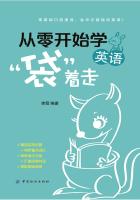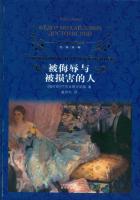Tahur means“the original place,”in other words,hometown.The Tahur ethnic group is originallyfrom the Zeja River area north of Heilongjiang,but military invasion from the Russian Czar in the early17th century forced them to move southward.When theycame to the Nenjiang River area east of Greater HingganMountains and saw how beautiful the natural environmentwas,they
decided to settle there.
During the centuries the Tahur have lived in the Nenjiang River area,their long-time hunting and fishing life style havemade them into an agile and brave peopl eand led them to create many sports activities closely tiedto their work and lives.From ancient times,they haveplayed a game very similar to field hockey,which the Tahurcalled“Beikuo.”In 1976 China organized its first professionalhockey team around some young Tahur men.
These young men from the remote countryside were selectedthrough fierce competition and catapulted into theinternational arena thanks to their skill in Beikuo handeddown to them from their ancestors.
Located in Hala Village,Ya’ersai Town in the MeilisiDistrict of Qiqihar is a Tahur village with a long history.
In the past,the villagers toiled from sunrise to sunset onan average of 2.5 mu per person,always hoping for better times,but always reaping poverty.In 1998 a major floodon the Nenjiang River destroyed their fields and changedtheir reluctance to abandon their reliance on agriculture.
With the financial assistance of the National committeeof the Chinese People’s Political Consultative Conferenceand the National Charity Association of China,the next year they rebuilt the village into a modern newvillage,giving the villagers a beautiful new home.Thevillage was divided into four residential areas with acommon style in a natural distribution.Of the 300 householdsin the village,182 are Tahur households.The totalpopulation is 1,036,of which 70%are Tahur.This is thenew Tahur village with a pronounced Tahur character.
In order to solve the problem of unsanitary and unsightlyconditions caused by raising cattle and sheep,inthe fall of 2001,the village built two high-standard cattlebarns with 1,500 square meters of floor space to centralizeall livestock breeding in the village.Then in 2002,the village built a plant to turn large quantities of straw waste into gas,which also solved the problem of piles ofstraw chaff littering the environment.The villagers organizedan ethnic dance troupe especially to promote ethnicculture.The troupe often performs in the village and issometimes invited to perform outside the area,and theirperformances are loved by villagers and tourists alike.
As part of the process of building a modern newvillage and improving infrastructure,the village hascarried out projects to build a loop road around the village,improve water and electricity supply,install anautomatic telephone exchange,and beautify the naturalenvironment.In addition,the village now has a localclinic,primary school,department store,hotel,parkinggarage,cultural and sports center,low-pollution foodexhibition hall and retirement home.In 2002 the village built a Tahur theme park with a hotel styled after a Tahurresidence and food and beverage service center featuringethnic cuisine,which also has entertainment venues suchas children’s play center,open-air horse track and largefishing pond.The new park has attracted large numbersof visitors who come to appreciate the beauty of natureand learn about Tahur ethnic customs.
Hala New Village is now taking great strides to improveits ecological environment and strengthen its ethniccharacter.People work hard to make the village moremodern and sophisticated and improve conditions fortourism.














